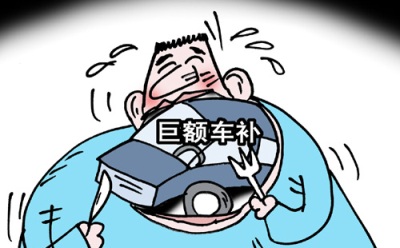Ministry of Finance Takes Aim at Tax Dodge Among China's High Earners
News, Page 4, Issue 446, November 30, 2009
Translated by Liu Peng
Original article: [Chinese]
China's Ministry of Finance (MOF) issued a notice on November 25 which redefined additional bonuses like transportation payments, communication subsidies and other benefits as part of an employee's monthly salary. These extra payments, which were previously classed as "welfare" and therefore not subject to tax, will soon be taken into account when determining an individual's taxable income.
On November 26, an official from the MOF revealed to the Economic Observer that the ministry's purpose in introducing these new rules, was to strengthen the management of the high amount of welfare payments that are currently being awarded at the country's monopoly enterprises, and by doing so, make the payment system at these enterprises more transparent.
Despite the intentions of the ministry, the notice caused quite a stir amid the public with many people weighing in on the topic. A large number of regular wage-earners were worried that the implementation of the policy would result in a reduction of their take home pay. In addition, others questioned why the new regulations were only being applied to employees working in companies and were not being extended to include China's public servants.
Regulating "Welfare" Income Payments at China's Large Enterprises
"The MOF's move is connected with an earlier nation-wide inspection campaign launched by the State Administration of Taxation against large enterprises in early September this year," a financial manager told the EO.
A taxation official who took part in the inspection campaign revealed that large state-owned enterprises (SOE), especially those large monopoly enterprises, were found to have been awarding their employees generous welfare payments that exceeded those of other companies, which aroused suspicions among tax collectors that these enterprises were helping their employees to evade their personal income tax obligations.
The problem was most evident in the awarding of transportation subsidies. Some senior managers at certain SOE could apply for transportation subsidies worth several thousand yuan and sometimes even in excess of ten thousand yuan a month, amounts that were often close to, or even above, their base salary.
An official from the MOF explained the new regulations would make the system by which such enterprises paid their staff more transparent.
"The regulation will allow us to better regulate the pay of high-income senior managers at SOE and also the relatively high income of employees in other large and medium-sized enterprises," the official added.
Su Nanhai, director of the Commission of Salary Studies at the China Association for Labor Studies, believes that allowing housing and transportation subsidies to be taken into account when calculating the amount of income tax owed by an individual is a move in the right direction.
While discussing the new MOF announcement, a pay officer at an unnamed business said that "their personal income burden of those who work at companies that don't offer this kind of 'social welfare' will not be effected. But those who receive substantial transportation, communication and housing subsidies, can expect that their tax payments to increase by a large margin."
Calls to Clarify Scope of New Policy
Although broadly supporting the new regulations, Su Nanhai also shared his concerns about the timing and scope of the new regulations with EO.
He noted that as the global financial crisis has not yet completely passed and many people are still not willing to spend, the introduction of these changes to tax policy could well have a negative impact on the much-touted goal of "expanding domestic demand".
In addition, at a time when many people were actually hoping that the government would raise the minimum threshold at which individual income is taxed, the appropriateness of introducing these new rules at this juncture probably needs further consideration.
He suggested that the MOF should make it clear that the regulations are targeted at the problem of high "welfare payments" at monopoly enterprises in order to avoid social misgivings.
The financial manager quoted above revealed that although ordinary enterprises wouldn't be targeted by the tax bureau for now, as time went on, all enterprises would eventually be required to obey the new rules.
Su said "If all enterprises are to be required to implement the new regulations, employees with relatively low income will obviously also be affected."
In addition, Su pointed out that the regulations would likely lead to a large rise in the official measure of the average wage of employees in China's cities and towns.
That said, this shift would require the National Bureau of Statistics (NBS) to alter the way in which it collects and collates data in cooperation with the Ministry of Finance.
As for why the new rules don't apply to public servants, our source at the MOF didn't offer a direct response. He simply emphasized once more that the regulation only applies to workers employed by businesses and no rules had been issued in relation to any related problems that might exist in the public service.
Links and Sources
Ministry of Finance: Announcement (Chinese)
Economic Observer: A Tax on Mooncakes
Xinhua: image (Chinese)
The views posted here belong to the commentor, and are not representative of the Economic Observer |
Related Stories
Popular
Briefs
- China's CPI Turns Positive as Trade Strengthens
- China's CPI returned to positive growth in November with food prices up 3.2 percent year-on-year in November.

- Source:National Bureau of Statistics
- Sneak Preview of Hu Shuli's New Caixin Project
- Signs of what Hu Shuli's next media project will look like emerged on her new Sun Yat-Sen University-hosted website on Monday.

- Source:Sun Yat-Sen University

- NATIONALISATION
- Advance of the State
- A look at the recent growth in the role of government and state-owned enterprises in a ran...




















